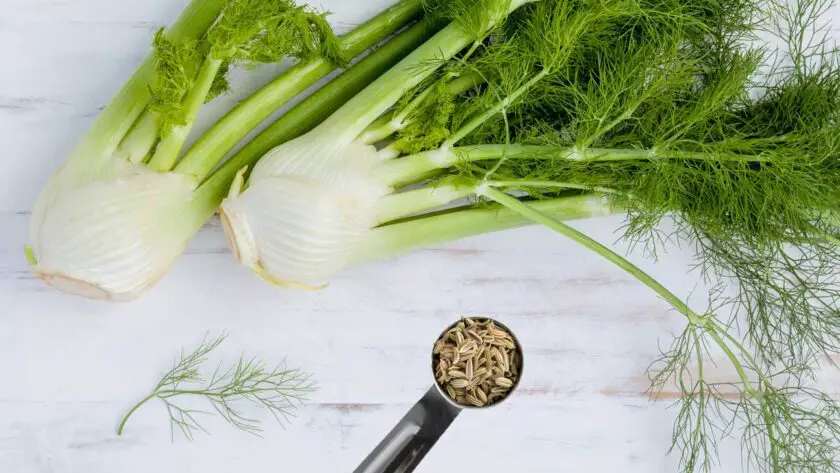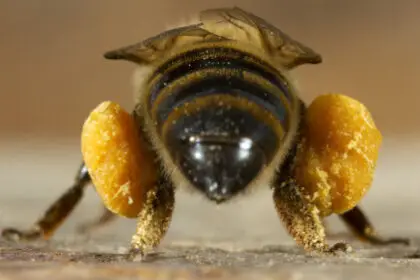Since ancient times, fennel has been prized for its potential to support sharp eyesight. The ancient Romans referred to fennel as “the herb of sight” and would consume this aromatic herb to help improve their vision when reading or writing in dimly lit spaces. Even today, fennel remains one of the most popular natural remedies for supporting eye health and slowing age-related vision issues like cataracts.
New research is now confirming what Romans observed centuries ago – that regularly eating fennel and other foods containing antioxidants may help delay cataract progression. A cataract is a clouding of the eye’s natural lens that leads to blurred or hazy vision. As we age, cataracts tend to develop slowly over time. Modern medicine treats cataracts surgically, but this new research suggests regularly consuming fennel could potentially postpone the need for cataract surgery by slowing the formation of lens clouding.
In today’s article, we’ll take a closer look at the science behind fennel and vision health. We’ll explore how the antioxidants in fennel may protect the eyes from oxidative damage and reduce inflammation that can contribute to cataracts and other age-related eye issues. We’ll also discuss other lifestyle factors like diet, exercise and UV light exposure that impact long-term eye health. Read on to learn more about how integrating this ancient “herb of sight” into your routine could support lifelong sharp vision.
What Causes Cateracts?
Cataracts typically develop due to a combination of factors, both genetic and environmental. Here are some of the main causes and risk factors for cataracts:
- Aging – As we get older, the proteins in the lens of the eye start to break down and clump together, causing cloudiness. The risk increases significantly after age 60.
- UV Light Exposure – Long-term exposure to ultraviolet rays from sunlight can damage the proteins in the lens over time. Wearing UV-blocking sunglasses helps reduce exposure.
- Smoking – Chemicals in tobacco smoke are toxic to the lens and accelerate cataract development.
- Diabetes – High blood sugar levels can cause the lens to swell and become cloudy more quickly. Managing diabetes helps reduce risk.
- Medications – Long-term use of certain medications like oral steroids can increase cataract risk.
- Eye Injury or Inflammation – Any prior injury, surgery or inflammation within the eye can sometimes contribute to cataract formation.
- Genetics – Some people inherit genes from their parents that make them predisposed to developing cataracts earlier in life.
Lifestyle choices like nutrition, wearing sunglasses, avoiding smoking, and controlling diseases like diabetes can help reduce the risk of cataracts. But for most people, they tend to develop slowly over decades as part of the normal aging process.
In appearance, fennel bulbs have a round or oval shape, with superimposed stalks that give them a layered look. The bulbs range in size from that of a tennis ball to a large grapefruit. Their color is a pale greenish-white that looks nearly white at the bottom where it was growing underground. The stalks and stringy fibers are also white in color. Bright green feathery fronds top the bulbs and flow outwards. Small yellow flowers eventually emerge from these tiny fronds if left to fully mature.
When it comes to scent, fennel has an unmistakable fragrance similar to anise, though slightly sweeter and more nuanced. This is due to anethole, the organic compound that gives both fennel and anise their signature flavors. Crushing, cutting or grating the bulbs causes them to release more of their aromatic oils, intensifying the anise-like smell. It’s powerful enough to scent an entire room. The fronds and leaves also emit the scent if rubbed or bruised.
In terms of taste, fennel bulbs have a fascinating flavor with notes of sweetness combined with subtle hints of grass and light licorice that comes from the anethole. The texture is crunchy and juicy, much like a celery stalk but with more moisture. The fibrous parts are more stringy and chewy. The feathery fronds can be used as an herb, imparting a more direct anise flavor.
Fennel is widely used in many cuisines from Italian to Indian. It has affinity for pairing well with citrus, tomatoes, olives, seafood, pork, chicken, and herbs like basil, oregano, and thyme. The crunchy sweetness balances well with cheeses like parmesan, pecorino romano, and feta. A classic combo is fresh fennel sliced thin and tossed with orange segments, olive oil, salt and pepper. Fennel fronds can be chopped and used as a fresh garnish. The seeds add flavor to sausages, roasted meats, curries, and herbal blends.
In all, fennel is a versatile ingredient with unique scent, taste, and texture that makes it a staple in dishes across the Mediterranean region and beyond. Both the bulbs and seeds add anise essence to sweet and savory foods. As more people discover its uses, fennel continues to see resurgence in modern cooking.
Key Nutritional Benefits & Medicinal Sses of Fresh Fennel Bulbs & Fennel Seeds:
Fresh Fennel Bulbs:
- Low in calories but packed with vitamin C, potassium, folate and fiber. Has antioxidants like kaempferol.
- Phytonutrients in fennel help prevent inflammation and reduce oxidative stress. May have anticancer properties.
- Fiber promotes healthy digestion. Fennel has prebiotic benefits for gut bacteria.
- Contain anethole which has antibacterial effects and may help fight pathogens in the body.
- Has antispasmodic properties that can help relieve gastrointestinal issues like bloating, gas and constipation.
Fennel Seeds:
- High in powerful antioxidants like quercetin, kaempferol and rutin. Have strong anti-inflammatory effects.
- Essential oils in seeds reduce bacterial growth and treat respiratory infections. Also used to disinfect snake/insect bites.
- May benefit heart health by lowering blood pressure and cholesterol levels.
- Contain estragole that increases breast milk production in lactating mothers. Also eases infant colic.
- Used in Ayurvedic medicine to treat a wide array of ailments from congestion to digestive problems. Has an analgesic effect.
Check Out Starwest Botanicals Organic Fennel Seed.
They Have Organic Fennel Seed For Cooking,
Organic Ground Fennel Seed For Supplement Ingesting
And Organic Fennel Seed Tea Bags
In summary, both parts of the fennel plant provide unique health benefits from fighting free radicals to protecting the gut. It has served as an important medicinal herb for thousands of years and remains popular today in natural medicine.
Fennel has earned its distinction as the “herb of sight” since ancient times, but this aromatic plant offers so much more than eye health. From its distinct anise-like scent to its sweet, grassy crunch, fennel provides a unique depth of flavor and versatility in the kitchen. Both the bulbs and seeds can elevate dishes across cuisines, from Italian pastas to Indian curries.
Beyond taste, fennel has emerged as an increasingly valued health-boosting food and medicinal herb. The phytonutrients and fiber in fresh fennel bulbs promote digestion, heart health, and antimicrobial protection, while also reducing oxidative stress and inflammation. Likewise, fennel seeds contain concentrated antioxidants and essential oils that strengthen immunity and may even increase milk flow for nursing mothers.
As more research unlocks the diverse benefits of the fennel plant, this ancient herb continues finding renewed purpose in the modern world. Both as a beloved ingredient and nutritional supplement, fennel is poised to keep improving eye health and overall wellbeing for generations to come.






